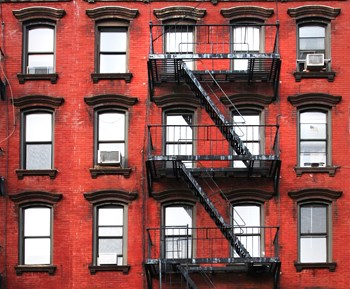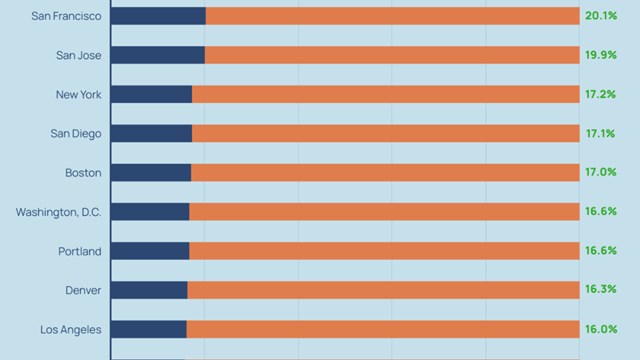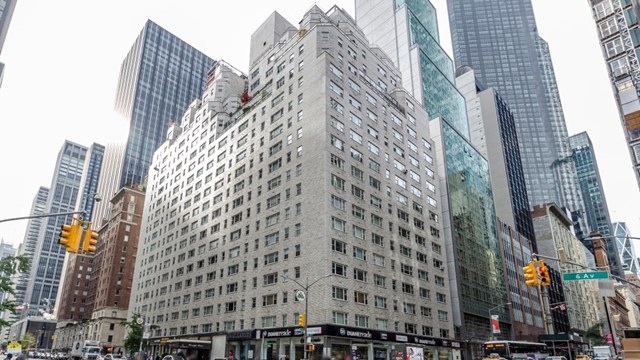
A proposed agreement drafted by New York City’s Housing Preservation and Development (HPD) department has caused Mayor Bill de Blasio some grief recently, as regulatory measures affecting buildings in the Housing Development Fund Corporation (HDFC) program have riled up some co-op shareholders.
In short, the de Blasio administration aimed to require HDFC co-ops to hire monitors appointed by the city, and set limits on the sale prices of units. Non-compliant buildings would lose valuable tax breaks; compliant buildings would gain them. As reported by the New York Post on April 29, the mayor met with a group of concerned HDFC co-op owners and, according to a post on the HDFC Coalition Facebook page, agreed to “pause” HPD's proposal, which owners believed applies a “one-size-fits-all” opt-in program offering greater tax incentives and increased city regulation to a situation requiring more nuance.
The co-ops in question, according to the Post story, are “once-derelict buildings the city sold decades ago to homesteaders for as little as $250 an apartment,” and “now have income limits for those who want to buy in.”
In a time of increased concern over skyrocketing costs of living, dilemmas over affordable housing are complex. The Cooperator spoke with attorneys who have long worked with HDFCs to ascertain how HPD's proposed regulation came to be, the nature of residents' objections to it, and whether a compromise can be reached.
The Proposal
In the years since the HDFC program was established, several of those originally derelict buildings rescued by the program have evolved into successful, independently functioning, even thriving co-op properties, while others remain in distress, or fall somewhere in between. HDFC co-ops may take advantage of property tax reductions under the Division of Alternative Management (DAMP), which encourages private ownership of buildings once owned by the city. Some co-op shareholders appeared concerned as to how the mayor's proposed regulatory move could affect these tax incentives.
“I think what's being proposed via the regulatory agreement is that an HDFC co-op could voluntarily opt in, in exchange for incredibly robust real-property tax exemptions, which would require a third-party monitor [chosen by the city, but hired by the co-op] to ensure that the corporation continues to operate properly and adheres to the restrictions in the regulatory agreement,” says Erica F. Buckley, a partner with the international law firm Nixon Peabody.
So while co-ops that agree to the new regulations could potentially get an even better tax break, those that refuse could potentially lose theirs. This didn't sit well with those who had grown accustomed to their DAMP tax cap.
Crossed Wires
One possible source for the disconnect between HDP and HDFC co-op shareholders? “I think that people may have really lost sight of what an HDFC is, and the purpose of article 11 of the Private Housing Finance Law,” says Buckley. “These entities were never intended to operate as market-rate housing.”
“I would imagine that those co-ops that are getting million-dollar purchase prices for units are the ones making the outcry, as they would neither want to give up their tax exemptions nor be further regulated,” says Michelle P. Quinn, a senior associate with the Manhattan-based law firm Gallet Dreyer & Berkey, LLP. “I would posit that, were they not to sign the agreement, and their exemption then expire, those buildings could become distressed. They would receive no additional city oversight, but without the tax exemptions, costs would escalate. The families in those buildings with comparatively lower incomes that don't have a million dollars somewhere in a trust fund or sitting off in an asset someplace could see their costs go up, which is not what the whole HDFC program was designed for.”
Buckley adds that when an HDFC building was incorporated, the property transferred, and the shares issued, there was a loan in place under very specific requirements spelled out in the Private Housing Finance Law. “Once that loan was satisfied,” says Buckley, “then the basic requirements of the aforementioned law govern, which primarily state that you have to own and operate a project on behalf of persons and families of low income. That corporate purpose doesn't change, but seems to have gotten lost in this whole conversation. I think that there's been a misperception with the early HDFCs and the language in their documents, because of the initial advance that was given to them. Their thinking was, 'Once we satisfy the terms of the security agreement, then we're free market.' But that's not the case; they're subject to the overall purpose of the statute, which is to operate for persons and families of low income.”
Next Steps
As some HDFC co-ops thrive while others struggle to scrape by, the initial HDP proposal may well have been inadequate to address a program that applies to a significantly more diverse array of properties now than it did when originally implemented. While increased regulation and tax incentives may benefit shareholders toward the bottom of the income ladder, those higher up may be worried about taking a loss on an extremely significant investment.
“If you look at the genesis of the program, it was developed to take city-owned properties inhabited by tenants and encourage those tenants to become the new rightful owners in order to get those buildings back onto the tax rolls and out of the city portfolio,” Buckley explains. “So the idea that 25 or 30 years later, these properties would be so incredibly valuable and sought-after may have been unimaginable for the city at that time; these were distressed buildings weighing the city down that needed to be reallocated.”
Whether the city will recognize the disparity of co-ops under the HDFC program as stands today remains to be seen, but Buckley is optimistic.
“I believe that the city can take all of the feedback they've gotten thus far and come back with a more nuanced proposal that can perhaps be responded to in a more positive fashion,” she says. “And I give the city a lot of credit for doing what it did. This is not an easy bear to tackle, but they took it on with the best of intentions. Anytime you're trying to cater to some 30,000 people, the idea of achieving consensus is daunting.”
Mike Odenthal is a staff writer at The Cooperator.






12 Comments
Leave a Comment